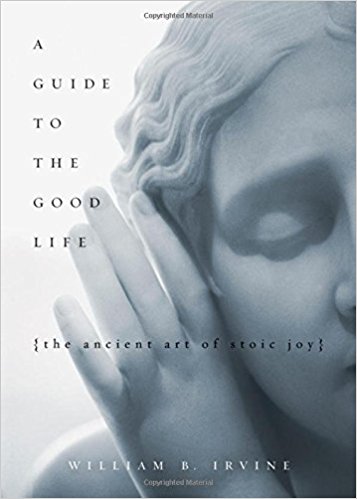-
Great Book: A Guide to the Good Life: The Ancient Art of Stoic Joy by William B. Irvine – A 15 min Summary

– “Irvine excels at giving a “walking tour” of the many schools of Stoic philosophy, from Greek to Roman traditions, identifying individual Stoic thinkers (many more than Seneca) and their principles and techniques, which Irvine argues are even more relevant in modern times than their own.” –Philosophical Practice “Well-written and so compelling, this is a…
-
Stoic History
Mainly based on info from “A Guide to the Good Life: The Ancient Art of Stoic Joy” – William B. Irvine The First Stoics Zeno – (333-261 BC) = the first Stoic started as a Cynic “same” as today’s homeless Antisthenes pay attention to your enemies, for they are the first to discover your mistakes…
-
Marcus Aurelius
From Wikipedia: Marcus Aurelius (Latin: Marcus Aurelius Antoninus Augustus; 26 April 121 – 17 March 180 AD), was Roman Emperor from 161 to 180 AD. He ruled with Lucius Verus as co-emperor from 161 until Verus’ death in 169. He was the last of the “Five Good Emperors”, and is also considered one of the most important Stoic philosophers. During his reign, the Empire defeated a…
-
Epictetus
Epictetus (Greek: Ἐπίκτητος; AD 55 – AD 135) was a Greek sage and Stoic philosopher. He was born a slave at Hierapolis, Phrygia (present day Pamukkale, Turkey), and lived in Rome until banishment when he went to Nicopolis in northwestern Greece where he lived the rest of his life. His teachings were noted down and published by his pupil Arrian in his Discourses. Philosophy, Epictetus taught, is a way of life and not just a theoretical discipline. To Epictetus,…
-
Seneca (ca. 4 BC – 65 AD)
Lucius Annaeus Seneca (often known simply as Seneca; ca. 4 BC – 65 AD) was a Roman Stoic philosopher, statesman, dramatist, and in one work humorist, of the Silver Age of Latin literature. He was tutor and later advisor to emperor Nero. While he was later forced to commit suicide for alleged complicity in the Pisonian conspiracy to assassinate Nero, the last of the Julio-Claudian emperors, he may…